|
British professors seek affiliation with
U of Haifa in anti-boycott symbolism
HAIFA (Press Release)—Over 100 academics from across the globe, mostly from
England, have recently contacted the University of Haifa requesting to be
symbolically appointed as an Affiliated Professor of the University of Haifa.
The requests have come following the threat of a boycott of Israeli academia,
and they express the support of the academics for the University of Haifa. The
appointments will enable the academics to introduce themselves at conferences
and academic forums as researchers from the University.
"It is encouraging to see the trend of academics, who are totally absorbed in
research, protest the effort to force political opinions through a boycott of
academia, the symbol of freedom of thought and expression," said Prof. Yossi
Ben-Artzi, Rector of the University of Haifa, who receives new requests each
day.
The preceding story was provided by the
University of Haifa..
___________________
Grandparents who take care
of grandchildren
likely to have favor returned, research shows
HAIFA (Press
Release)— Perhaps this headline isn't surprising, but now it has
scientific backing: new research at the University of Haifa found that
grandchildren who, during their childhood, were taken care of by their
grandparents, expressed a greater desire to take care of their grandparents as
they aged than did grandchildren who were not taken care of by their
grandparents.
"Even little things, like occasional babysitting for a few hours were enough to
make grandchildren want to return the favor to grandparents," said Dr. Ahuva
Even-Zohar, from the School of Social Work at the University of Haifa who
conducted the research.
The research, under the direction of Prof. Shlomo Sharlin, evaluated 216 pairs
of grandchildren and their grandparents. According to the researcher, the study
results reveal that not only did grandchildren who were taken care of by their
grandparents express a desire to help, they were actually very involved in
helping with day-to-day things like transportation, shopping, nursing care,
emotional support and initiating visits.
The research also
showed that gender affects the desire to help: granddaughters exhibited more
desire to help their grandparents than did grandsons. However, in reality, no
difference was noted in the actual assistance given to grandparents between
granddaughters and grandsons. "It is important to note that while the
grandchildren felt an emotional connection to past experiences, grandparents
need to feel that they are also helping their grandchildren in the present,"
remarked Dr. Even-Zohar.
"The practical
meaning of the research is that grown grandchildren can, and need to be involved
in the ongoing care of their grandparents and it is possible to build a program
of care which includes the entire family, including grandchildren. The
grandchildren's involvement in caring for their grandparents should be an
important part of the family support," summarized the researcher.
The preceding story was provided
by the University of Haifa..

Rabbi Abraham Klausner was a
chaplain
whom Holocaust survivors called 'one of us'
By Alex
Grobman, PhD
ENGLEWOOD, New Jersey—Many
Holocaust survivors did not know Rabbi Abraham Klausner, a Reform rabbi, who
died last week, but he had a profound influence of those who lived in
post-war Germany and Austria. Klausner, who was an American Jewish chaplain,
arrived at Dachau during the third week of May 1945.
Convinced there would be nothing for him to do in Europe at the end of the
war, he volunteered for duty in the Far East. After being assigned to
Dachau, he began signing death certificates and burying the dead.
Just
before his unit was ordered out of the camp on June 2, 1945, a man who was
so ill that he was restricted to the barracks asked in a very distinctive
voice if Klausner knew his brother. He did. Chaplain Abraham Spiro had come
to Europe with him on the same ship.
After
reuniting the brothers, Klausner realized the need for the survivors to find
their families. He also recognized that he could not abandon his fellow
Jews, and left his unit. This was a very chaotic period, and chaplains and
other officers helped him finesse his unorthodox and unauthorized mission
after his return to the camp.
He began
working with the survivors to compile and publish
six volumes containing lists of survivors in Bavaria and distributed them
throughout the world. This was the first major attempt to communicate with
Jews in the West.
(Jump to continuation)
(Return to top)
|
Nancy Harrison of Anderson Travel
presents:
Adventures in Cruising
Watch this ad for a different cruising photo each day. The adventure can
be yours!
My thanks to Abe & Bea Goldberg and Ruth Kropveld for sharing photos of
their family cruise on Holland America's Ryndam.
Call Nancy Harrison at (619) 265-0808 to help you book a cruise from San
Diego or anywhere. Or click this ad to go right to her
email, or you can key in
sdheritage@cox.net
|
Aboard Holland America Ryndam
San Diego to Mexico cruising

Ryndam
leaving Mazatlan
|
Amsterdam mulls
monument to local Holocaust victims
AMSTERDAM—The Auschwitz Committee in the Netherlands wants to build a memorial
wall inscribed with the names of the 110,000 Dutch men and women who were killed
in Nazi death camps.
Jacques Grishaver of the committee said that the wall, inspired in part by
similar walls in other countries, would be placed near the country's Auschwitz
Never Again monument, in Amsterdam’s Wertheim Park.
He said the monument would be built in 2009, pending approval from the city
council. The wall is to feature the names of murdered Jews, but would also
include resistance fighters and political prisoners, according to Dutch media
reports.
The preceding story was provided by the World Jewish
Congress
(Return to top)
Neo-Nazis
attack concert goers in Siberia
CHELYABINSK, Siberia, Russia (Press Release)—A neo-Nazi group has attacked
residents in the Russian city of Chelyabinsk. Gangs of skinheads attacked music
fans last week mingling in with spectators of a punk rock concert in the
Siberian city, according to media reports.
The neo-Nazis reportedly have been "patrolling" the downtown area in groups of
dozens, attacking local citizens. Police who were summoned to the scene
reportedly talked to the gang members, but no charges have been filed against
the group.
The preceding story
was provided by the World Jewish Congress
(Return to top)
Remembering Entebbe on rescue's 31st anniversary
This week marks the 31st anniversary of
Operation Yonatan, Israel’s dramatic rescue of 103 hostages that took place on
July 4, 1976 at Entebbe, Uganda. As a college student in the US, I vividly
remember watching events unfold as most of the rest of the nation was focused on
the celebration of America’s bi-centennial.
Jews around the world held their breath as the terrorist incident ended with a
relatively minimal loss of life. Pride and admiration for the daring and courage
of Israel’s decision-makers and generals was the order of the day.
In Israel, the anniversary of the operation was marked for years by public
official commemoration ceremonies. This year, it appears that the only
remembrance will be for Yoni Netanyahu, commander of the operation and the only
Israeli soldier killed at Entebbe. The Netanyahu family placed an ad announcing
the annual pilgrimage to the grave of Yoni, older brother of Likud party leader
Binyamin Netanyahu.
Back in July 2001, during the height of the terrorist war that followed the Camp
David talks, things were different and an official state commemoration of the
25th anniversary took place at Binyanei Hauma in Jerusalem.
In a masterful, moving event that was at once entertaining and educational, the
state of Israel marked the passage of a quarter of a century since the dramatic
hostage rescue. If the event were to be translated and exported, Israel’s image
problems could be improved dramatically, and Jews the world over might even
begin to regain pride in the Jewish state.
In the week leading up to the anniversary, Israel’s media focused on the
unprecedented operation that took dozens of soldiers from Israel’s elite
brigades on a daring and dangerous mission to rescue Jews thousands of miles
away.
A TV documentary focused on Yoni Netanyahu’s career, featuring extensive photos,
film clips and interviews with his brothers and former girlfriend. True to form,
a post-Zionist columnist in Haaretz said the program, “Seems more like a
propaganda film,” and opined “the Yoni that emerges from the film is not a flesh
and blood character, but something closer to a modern day Bar Kochba.”
A few years after his death, the Netanyahu family published a book of Yoni’s
letters written over a 13-year period between 1963-1976. Entitled ‘Self Portrait
of a Hero,’ the letters paint a picture of a passionate Zionist as they
chronicle Yoni’s passage through the army and his participation as a paratrooper
in two of the most crucial battles of the Six Day War.
The 25th anniversary event was attended by the nation’s leading politicians;
those who took part in the Entebbe operation—former hostages and their rescuers;
and thousands of soldiers from Sayeret Matkal, Tzanchanim and Golani—the
brigades that carried out the rescue 25 years ago.
(Jump to
continuation)
|
Commentary
Your letters to
sdheritage@cox.net, or to San Diego
Jewish World, PO Box 19363,
San Diego, CA,
(USA) 92119. Please include the name of the city where you live.
|
 The
larger meaning of The
larger meaning of
our nation's birthday
by David Harris
|
NEW YORK—Amidst
the fireworks and family fun, it's important to reflect on the
larger meaning of our nation's birthday. Freedom is a priceless
gift. We owe those who've defended it more than we can ever
express.
From the
beginning, America has served as a beacon of hope for the
oppressed. Just ask those who fled political and religious
tyranny what America means to them.
And America
is a permanent work in progress, constantly seeking to overcome
its shortcomings. This, too, reflects our nation's greatness.
We know we
must always do better to achieve our founders' vision that "all
men are created equal, that they are endowed by their Creator
with certain unalienable rights, that among these are life,
liberty, and the pursuit of happiness."
On this
Fourth of July, let's recall the words from the Hebrew Bible
inscribed on the Liberty Bell: "Proclaim liberty throughout all
the land unto all the inhabitants thereof."
Happy
Fourth of July, America.
Harris is the executive director of the American
Jewish Committee. This column was originally prepared as a
radio address, to which we link. We thank
San Diego City Councilman Jim Madaffer from whose website we obtained the snazzy
USA and flag logo.
Independence and tolerance: are we really
required to tolerate intolerance?
ENCINITAS, California—The 4th of July reminds us of the stirring words,
deeds and thoughts upon which the United States of America was founded
and forged. The crux and the crucible is in all being created equal in
the eyes of our creator. We celebrate Independence Day for the
enunciation of the core principle upon which we’re based and blessed,
and which has been echoed around the world since.
That principle is
extended by some to mean that we all, therefore, are deserving of equal
outcomes, regardless of merit or effort, which is the basic dividing
line in most political policy debates. Underlying that distinction is a
both more practical and, at the same time, more philosophical question:
How far should tolerance extend? And, underlying that is the ultimate
question for philosophers: Is there objective reality, or is reality
just relative to each?
If reality is
subjective, then all individuals’ realities must be tolerated. However,
if there are objective truths, then there are limits to tolerance.
Bertrand Russell
piqued the limit of tolerance by asking whether intolerance of those not
tolerant is itself intolerance. The answer must be yes, at least if
tolerance is taken as the ultimate principle.
But, tolerance is not
the ultimate principle. Openness does not mean vacuity or lack of
distinction, unless it becomes meaningless to think or, more
practically, have experience. Further, to fail to act upon experience is
to deny both its existence and to deny the essence of being human in
having volition of thought that, in turn, requires consonant action in
living.
Independence is the
ultimate principle, and its most basic application is that enslavement
by others is intolerable, not only because of its immediate effects but,
also, because it denies the equality of earning individual advancement
and enhancement of conditions.
Judea Pearl, father of
Daniel Pearl, who was beheaded by terrorists, is a
world recognized leader in the study of
causality. He has struggled to apply his rigor of thinking to
the meaning of his son’s death. He differentiates between a religion and
its adherents, Islam, and some of its members whose extreme behavior is
a modern scourge. That upsets others who trace a connection between the
teachings and history of application of those teachings with the present
actions of its extreme elements. It’s a difficult distinction,
especially when in modern asymmetric warfare the extremists swim in a
sea that, by numerous polls, has 10-60%%, depending on country,
supportive of extremists’ actions. But, nonetheless, the distinction
must be made, as experience also shows us that elimination of the
extremists – requiring armed confrontation -- relegates the underlying
hostility to a level of danger that is not applied or is manageable
without resort to arms, although certainly not to benignity or
benevolence.
(Jump to continuation)
_________________________
'Not a patriot,' singer tells of USA
she loves
By Candye Kane
LINCOLN, NEBRASKA—Today
is the Fourth of July and I am here in Lincoln, Nebraska. This is corn field
country where people actually stop for you when you get a flat tire, drive you
through the McDonalds on the way to pick up the new tire, pay for lunch and then
insist on changing your tire for you on the side of the freeway while the whole
band stands aghast, watching. (This actually happened!) This is plain-spoken
people country where they look you in the eye, with a firm handshake that they
mean and do, what they say they will do. This is the heartland part of the US
where young boys and girls go off to war because they really believe in our
Grandparents vision of a democratic, honest country that would never condone
torture. This is the part of the country where young soldiers go off to war not
only because they want to see the world and get a shot at a good education but
because they were brought up to respect the flag and the people whose blood
spilt for it.
 I
am not a real patriot. There are a lot of problems in this great country of
ours. We are stuck in the quagmire of this losing war in Iraq; we will leave our
huge deficit to our kids and grandkids; The President has an imaginary friend
who gives him advice (that, or he hears voices in his head.) Our government
seems to virtually ignore global warming and is so gluttonous from the big money
they get from oil lobbies that they spend zip on research for new energy
resources. They would rather worry about keeping hard working Mexicans out of
the USA and worry about whether two men might choose to marry and live in a
committed relationship. The health insurance problem is vast, not only because
we poor people have to choose between paying our phone bill or getting a check
up, but because a woman of my size can be denied health insurance even with low
blood pressure and low cholesterol, just based on my weight. Yes, it's a mess
here, my friends. I
am not a real patriot. There are a lot of problems in this great country of
ours. We are stuck in the quagmire of this losing war in Iraq; we will leave our
huge deficit to our kids and grandkids; The President has an imaginary friend
who gives him advice (that, or he hears voices in his head.) Our government
seems to virtually ignore global warming and is so gluttonous from the big money
they get from oil lobbies that they spend zip on research for new energy
resources. They would rather worry about keeping hard working Mexicans out of
the USA and worry about whether two men might choose to marry and live in a
committed relationship. The health insurance problem is vast, not only because
we poor people have to choose between paying our phone bill or getting a check
up, but because a woman of my size can be denied health insurance even with low
blood pressure and low cholesterol, just based on my weight. Yes, it's a mess
here, my friends.
Still, I am happy to be an American. Why? Because in my neighborhood growing up,
there were black people, Mexicans and white kids. There were Catholics, Jews and
Mormons. (I have been all three!) We didn't all agree about everything and we
spent a lot of time fighting with each other but I learned early that people
come in all sizes and colors. Here in America, there are mosques and churches of
all kinds, synagogues and Krishna temples. There is Eckankar and Paganism,
self-realization and even the dreaded scientology. There are women who walk
around in cut offs and halter-tops, butches with beards and rings in their
noses, women wearing Islamic head coverings and Amish dresses and bonnets at the
same rest stop. There are hookers who hang out on my street and sell their wares
to men who drive by in their souped up Toyotas with their stereo so loud it
makes my I,U.D. vibrate. There are surfer boys, retired Marines, lesbians,
Jehovah's Witnesses, Rastafarians and Samoan Christians all on the block where I
live.
I love America because my government sucks, but I have the right to write about
it and talk about it and write letters to my congressperson and my local paper.
I have the right to protest and hold up signs and yell and scream at rallies. I
don't have every right that I should have. I should have the right to marry
whomever I want and I should have the right to be treated the same way under the
law as any married couple, heterosexual or otherwise. Poor people and regular
folks should have the right to run for office and it shouldn't be about money.
But I still believe in an America that will eventually try to right its wrongs.
(Not the ones that can't be righted; we can't bring back the buffalo or give the
Native Americans back all their land. We can't take back our historic mistakes
like slavery, refusing shiploads of Jewish children and women during WW II and
Japanese interment camps. Some wrongs are so horrific they cannot be reversed or
fixed.)
However, just like women fought for the right to vote, and people fought in the
60's for freedom and civil liberties for every American regardless of skin
color, I believe someday we will get back to the noble American ideals of our
forefathers and mothers. The America that our Grandparents loved and fought for;
The America that valued honor and believed diversity made a country stronger
just like the statue of liberty inscription said. An America that really does
take care of its poor and its meek and huddled masses; An America that doesn't
just fill us with fear while lining their pockets but cares about each citizen,
poor and rich, gay and straight and strives to protect each of us. That's the
America that I am reminded of when I am here with the good people of the
Midwest.
There are good and bad people in every city in the world and I am not naïve
enough to think otherwise. But I want to be the kind of American who helps my
neighbor fix a flat and pays for lunch while doing it. I want to be the American
that holds out a hand to someone who is suffering. I want to get my childhood
vision back of an America that was good and noble, honest and true. A country
where your vote counted and you didn't just have to vote for the evil guy or or
the other evil guy. A country where our civil liberties are protected 100% and
where we would never hold people in prisons without due process or overthrow the
Geneva Convention as antiquated and out of date. I believe in an America that is
compassionate and cares about our planet and all its inhabitants, realizing that
we are all one in the great cosmic universe. So, when I sing that National
anthem tonight at my show in Lincoln, I will envision that America and these
salt of the earth American kids who are dying to defend her. I will envision us
all as one human family protecting and caring about each other in a pollution
free, peaceful world with polar bears and hybrid cars and health insurance
affordable to us all!
When not on tour, Kane makes her home in San Diego
(Return to top)
.
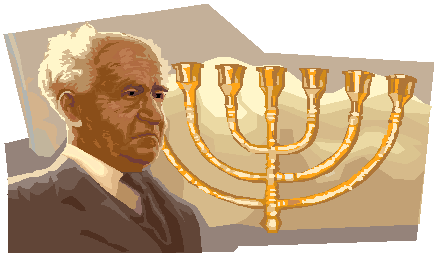 Jews
in the News Jews
in the News
--------------------------------------------------------------------------------------------------------
Like you, we're pleased when members of our community are
praiseworthy, and are disappointed when they are blameworthy.
Whether
it's good news or bad news, we'll try to keep track of what's being said in
general media about our fellow Jews.
Our news spotters are Dan Brin in Los Angeles, Donald H. Harrison in San Diego,
and you. Wherever you are, if you see a story of interest, please send a
summary and link to us at sdheritage@cox.net
and we'll acknowledge your tip at the end of the column.
To
see a source story click on the link within the respective paragraph.
|
*Marlene Canter has been
replaced as president of the Los Angeles Unified School District by Monica
Garcia, who was a backer of Los Angeles Mayor Antonio Villaraigosa's
previously unsuccessful efforts to carve out a larger role for the mayor's
office in running the schools. Canter had opposed the mayor's plan.
The
story by Howard Blume is in today's Los Angeles Times.
*Herb Eckhouse has an unusual job you might not expect a Jew to
be doing. He produces a high-end line of prosciuto, a pork-based
product. The
story by Amy Scattergood is in today's Los Angeles Times.
*U.S. District Court Judge Jeremy Fogel is considering a
constitutional challenge to the state's newest procedure for giving death
row inmates a lethal injection. The
story by Henry Weinstein is in today's Los Angeles Times.
*The family of slain Ron Goldman has acquired through bankruptcy
court the rights to O.J. Simpson's shelved novel If I Did It, and say
they are planning to have it published under a different title:
Confessions of a Double Murderer. Simpson was acquitted of
murdering his wife, Nicole, and Goldman in criminal court but a civil jury
found against him in a wrongful death suit. The Associated Press story
is in a package of briefs in the San Diego Union-Tribune.
*In a highly symbolic move, Hamas has forced an obscure group, the Army
of Islam, to release British Broadcasting Corporation reporter Alan Johnston
after four months of captivity in Gaza. Johnston then was taken to
former Palestinian Prime Minister Ismael Haniyeh's home to talk by telephone
to reporters. Johnston is assigned to the BBC bureau in Jerusalem.
The Associated Press
story by Sarah el Deeb is in today's San Diego Union-Tribune.
*Now that he has plea bargained and won't be charged with rape, Israel's
disgraced former President Moshe Katsav has told reporters he is
actually innocent. The Associated Press
story is in a package of briefs in today's San Diego Union-Tribune.
*Rabbi Abraham Klausner, whose service as chaplain to the Dachau
concentration camp is detailed in a story above by Dr. Alex Grobman, had
wanted to be buried in Arlington National Cemetery. But there is no
place for plots, only for urns, and as an observant Jew Klausner did not
want to be cremated. Democratic Congressmembers Nita Lowey of
New York and Tom Lantos of California tried to intervene in his
behalf, but to no avail. The
story by Jocelyn Y. Stewart is in today's Los Angeles Times.
*The controversy over President George W. Bush granting executive
clemency to I. Lewis 'Scooter' Libby, former chief of staff to Vice
President Dick Cheney, is not about to go away soon. The President
left open the possibility that he might pardon Libby for his conviction on
charges of perjury and obstruction of justice, and Senator Hillary Clinton
accused Bush of trying to protect his administration from whatever a jailed
Libby might say, if Libby in fact had been sent to federal prison. The
San Diego Union-Tribune has a pair (1,
2) of stories by the Associated Press on the controversy.
*To hear Jean Rouda tell it, Mayor Antonio Villaraigosa and
Television Anchorwoman Mirthala Salinas simply picked the wrong place to
carry on an extramarital affair—her Sherman Oaks condominium. When he
showed up one night with a take out bag of food and a bottle of wine,
everyone in the condominium complex knew whom he was visiting. Most of
the rest of the units are occupied by elderly Jewish people, and why would
he be bringing them wine at night? the
story by Duke Helfand and Steve Hymon is in today's Los Angeles
Times.
*Hy Zaret, the lyricist
who wrote the words to the oft-recorded "Unchained Melody," has died at age
99. His
obituary is in today's Los Angeles Times.
HOLOCAUST EDUCATION—There's a DVD out which will stimulate your Jewish pride,
Freedom Writers starring Hilary
Swank. It is based on the true story of Erin Gruwell, a teacher who came
to an inner city school in Long Beach and found students from African-American,
Latino and Cambodian backgrounds in gang wars with each other. She told
them that race hatred can lead to occurrences like the Holocaust, took them to
the Museum of Tolerance, had them read the Diary of Anne Frank, and then
started them writing journals about their own lives. The results were
transformative. One of the minor figures in the movie, played by an actor,
is Carl Cohn, who is today school superintendent for the San Diego Unified
School District. ... San Diego State University Prof. Lawrence Baron has
been invited to Northern Arizona University to lead a workshop on how to teach
the Holocaust and Genocide through film.

(Return to top)
 The Jewish Sports Fan
The Jewish Sports Fan
 |
Bay Ray day A-okay for Kevin Youkilis
Unless otherwise indicated, source for these stories is today's edition of The
San Diego Union-Tribune, to which we gratefully provide the links below. We do
not apply halacha to determine if a player is Jewish; rather, if he or she has a
Jewish parent or has converted to the faith, we count him or her as a member of
our community.
BASEBALL— In games played Tuesday,
Kevin Youkilis singled and walked and each time scored a run, as his
Boston Red Sox defeated the Tampa Bay Devil Rays 4-1. In the field,
Youkilis also was credited with participating in a double play, so it was a
productive day both offensively and defensively.
Youkilis is now listed as the American League's eighth best batter, with an
average of .329. ...
Scott Schoeneweis pitched an inning in relief for the New York Mets,
allowing one hit but no runs, and striking out two to drop his ERA to 5.28.
His teammate
Shawn Green continued ot have troubles at the plate, going 0-4 as his
batting average dropped to .271. The Colorado Rockies buried the New
Yorkers under an avalanche, 11-3.... In a game that lasted 4 hours, 23 minutes
over 13 innings,
Brad Ausmus and the Houston Astros squeezed out a 5-4 victory over the
Philadelphia Phillies. Ausmus contributed his 18th RBI to the effort in a
game that saw him single and walk....
Mike Lieberthal batted 2 for 4 for the Los Angeles Dodgers, but though
he got into scoring position in one inning, his teammates stranded him on the
base path. Nevertheless, the Dodgers prevailed 7-6 over the Atlanta
Braves. ...Rockies pitcher
Jason Hirsch, who sprained his ankle on Monday, was placed on the 15-day
disabled list.
ISRAEL BASEBALL LEAGUE—You can call him the "American Eagle" after San Diegan
Craig Eagle was the winning pitcher for the Modi'in Miracle on July 4th in an
Israeli Baseball League game against the Netanya Tigers. His team
biography tells us that Eagle, a right-handed pitcher, "recently completed his
senior season at Cal State East Bay...in 2007, led Cal State East Bay in
strikeouts with 78 in 79 IP and held opponents to .239 BA...possesses an active
fastball, a cutter, slider and changes speed effectively...in high school was a
two-sport athlete (baseball, basketball)…led Patrick Henry High School to the
CIF playoffs in three-consecutive seasons…named All-Eastern League as a senior
year…named to the San Diego Union-Tribune All-Academic Team as well as a
scholar-athlete in his junior and senior campaigns." The website also
informs that the 22-year-old stands 6'7, weighs 220, and is nicknamed Eagzz.
He lists his favorite types of foods as Chinese, Mexican and Italian, raising
the question how well the youngster adjust to tabuli, humus and felafel?
SWIMMING—Audrey Jacobs tells us that her husband Karl Jacobs, a
psychiatrist who plans on making the 21 mile Catalina Channel swim
Monday, July 9, and early Tuesday, July 10, has lined up some appearances on
local television on Sunday. He will be on KUSI Live's sports show from 7
a.m. to 9:30 a.m., and will be make a taped appearance on KNSD's evening sports
show. Meanwhile, he'll be receiving encouragement of another kind for his
venture to raise money for kids' swimming. At Congregation Beth El, Rabbi
Avi Libman will recite a special blessing. And, as coincidence
would have it, his father, Irvin Jacobs, will deliver the d'rosh.
(Return to top)
______________________

_____________


News from the
Israel Baseball League
|

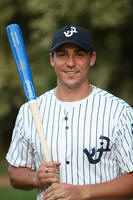
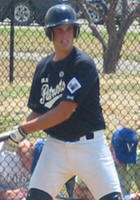
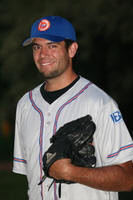
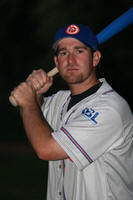
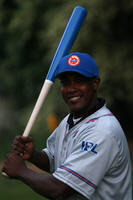
Jason Benson Jason Rees
Michael Olson Craig Eagle
Aaron Levin Adalberto
Paulino
Americans Eagle and Benson celebrate July 4th by pitching wins for their
Israeli teams
GEZER, Israel July 4 (Press Release)- There was extra excitement at the
ballparks on Wednesday as both games were played during the day in
celebration of America's Fourth of July.
Michigan native Jason Benson brought his 'A'-game to Yarkon Field in
celebration of his country's birth, pitching the Bet Shemesh Blue Sox
to a 6-1 victory over the Petach Tikva Pioneers. The win puts the
first place Blue Sox at a perfect 8-0 on the season.
Benson threw a complete game, scattering one earned run on just two
hits while striking out three and walking two. The victory is
Benson's first of the season.
Bet Shemesh's Australian Outfielder Jason Rees slugged his fifth
homer of the season, a 3-run shot in the fourth inning that put the
Blue Sox up 4-0. Designated hitter Gregg Raymundo also had a solid
game, going 2-3 while scoring two runs to go along with one RBI.
Petach Tikva's only run came in the bottom of the fourth when
Australian catcher Michael Olson hit a solo home run to left field for
his first of the season. The loss drops manager Ken Holtzman's
last-place Pioneers to 1-7.
In the day's other game the Modi'in Miracle earned their third win in
a row, beating the Netanya Tigers 6-1 at Gezer Field. This game also
featured excellent pitching from the winning team as San Diego native
Craig Eagle tossed a complete game, giving up four hits and one run
while striking out six and walking none.
Miracle first baseman and IBL first overall pick Aaron Levin
continues to work himself out of his early-season slump. He went 2-3
with four RBI and one run scored, including an RBI-double that put the
Miracle up 1-0 in the first inning and a 3-run home run in the sixth
to put the game away.
Modi'in's Dominican centerfielder Adalberto Paulino raised his
batting average to .353 on the season, going 2-3 with a 2-run double
in the bottom of the fifth inning to break the 1-1 tie. The win moves
manager Art Shamsky's team into a second-place tie with the Tel Aviv
Lightning.
Summaries:
1 2 3 4 5 6 7 R H E
Bet Shemesh 2 0 0 4 0 0 0 6 7 3
Petach Tikva 0 0 0 1 0 0 0 1 2 2
W: Jason Benson (1-0); L: Abel Moreno (1-2); HR: Jason Rees (5),
Michael Olson (1)
1 2 3 4 5 6 7 R H E
Netanya 0 0 0 1 0 0 0 1 4 0
Modi'in 1 0 0 0 2 3 x 6 7 2
W: Craig Eagle (1-0); L: Justin Prinstein (1-1); HR: Aaron Levin (2)
Standings:
Team W L % GB
Bet Shemesh Blue Sox 8 0 1.000 –
Tel Aviv Lightning 4 2 .667 3.0
Modi'in Miracle 4 2 .667 3.0
Netanya Tigers 2 3 .400 4.5
Ra'anana Express 1 6 .143 6.0
Petach Tikva Pioneers 1 7 .125 7.0
Thursday at 5pm the Bet Shemesh Blue Sox host the Modi'in Miracle at
Gezer Field and at Yarkon Field the Ra'anana Express take on the
Petach Tikva Pioneers at 7pm. See
www.IsraelBaseballLeague.com
for directions to the fields.
The preceding story was provided by the Israel
Baseball League
(Return to top)
|
Arts,
Entertainment & Dining |
'Hidden Christian' adjusts to life as Jew in
Israel, in acclaimed film, Live and Become
By
Dov Burt Levy
BOSTON—The film "Live and Become" has been acclaimed by audiences
and has won film festival awards in France, Germany and Denmark.
The film
tells the story of one Christian boy as he grows from boyhood to
manhood, from about age nine to age 35. Yes, he becomes a Jewish
Israeli.
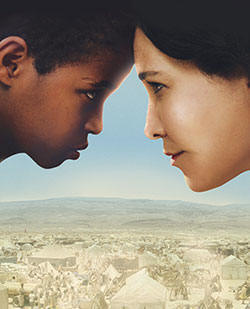 We
first see him holed up with his Christian family in a Sudanese
refugee camp. With them are groups of displaced and struggling black
Africans, including Ethiopian Jews (then called Falashas) readying
to go to Israel, plus Christians and Muslims displaced by civil war
and ethnic cleansing from Sudan and neighboring countries. We
first see him holed up with his Christian family in a Sudanese
refugee camp. With them are groups of displaced and struggling black
Africans, including Ethiopian Jews (then called Falashas) readying
to go to Israel, plus Christians and Muslims displaced by civil war
and ethnic cleansing from Sudan and neighboring countries.
When the
boy's mother sees a Jewish child die and then sees trucks entering
the compound to take Jews to Israel, she finds a way out for her
young son. She pushes, nay orders, him to join the woman whose son
has died, to go with her to Israel and not to return until he has
made himself a new, better life.
The
Jewish mother understands the situation, takes the boy, but later
when she dies in Israel, the boy is adopted by an Ashkenazi Jewish
family.
The film
portrays Shlomo's difficult absorption process, as he grows up and
becomes an Israeli man in deed and in citizenship. Blending in as an
immigrant is difficult under the best of circumstances, but when the
subject is a black child from a very different place, a "hidden"
Christian at that, the story is compelling.
Some
viewers may ask why the movie makes the boy a Christian; Jewish
Ethiopian immigrants have their own difficult absorption. That is of
course true. Ethiopian Jews have faced opposition from ultra
religious politicians who wanted formal conversions done before
accepting them as Jews. Making him Christian just emphasizes the
plight of the "other," not an uncommon situation that Jews have
shared for thousands of years.
The film
raises human questions that we all ask at one time or another. Who
am I? What am I doing here? Whom can I trust? Whom can I love? What
shall I be? What do I owe my family, my group, and my country?
Add to
all that memories of the mother who sent him away and from whom he
has not heard a word. Bottom line: a satisfying and heart-warming
film with a realistic ending.
The key
role of Shlomo, the boy and adult, is played by three impressive
actors. There are no disappointments either among the actors playing
other characters. Good, but imperfect souls, they confront dilemmas,
sometimes successfully and sometimes not, but always with a humanity
that you will appreciate and understand.
In short,
when good movie producers set Shlomo's psychological and physical
journey in the midst of Israel's intense and sometimes ferocious
daily life, hire excellent actors and set the scenes well, movie
goers get a delightful and satisfying movie experience.
Dov
Burt Levy is a columnist for the Jewish Journal - Boston North.
(Return to top)
Among other reasons for serving wine: Proverbs 31:6-7
“The scope of the subject of wine is never ending, [as indeed,] so many other
subjects lie within its boundaries. Without geography and topography it is
incomprehensible; without history it is colorless; without taste it is
meaningless; without travel it remains unreal. It embraces botany, chemistry,
agriculture, carpentry, economics – any number of sciences whose names I do not
even know. It leads you up paths of knowledge and by-ways of experience you
would never glimpse without it." (Hugh Johnson)
Summer is in full swing in
San Diego and to the wine enthusiast that means the vintners are here!
The vintners are here! It seems that everywhere I look a winemaker
dinner, wine tasting, wine education class, and wine and cheese sampling
is being offered in restaurants, bistros, and bars. If you’re like me
and can’t imagine eating a filet or fillet without the proper pour, then
read on. Here’s what’s happening this summer season in San Diego’s
world of wine.
Located between Little Italy and Old
town above Saffron eatery on the upper terrace of India Street is
Wine
Vault & Bistro
where I recently attended a
winemaker dinner hosted by Swanson Vineyards, Napa Valley. I love their 2003
Alexis and wanted to try some of their other wines. For $65, I was introduced to
6 impressive wines (and drinking the equivalent of 230z.) that were paired with
6 different delicious dishes.
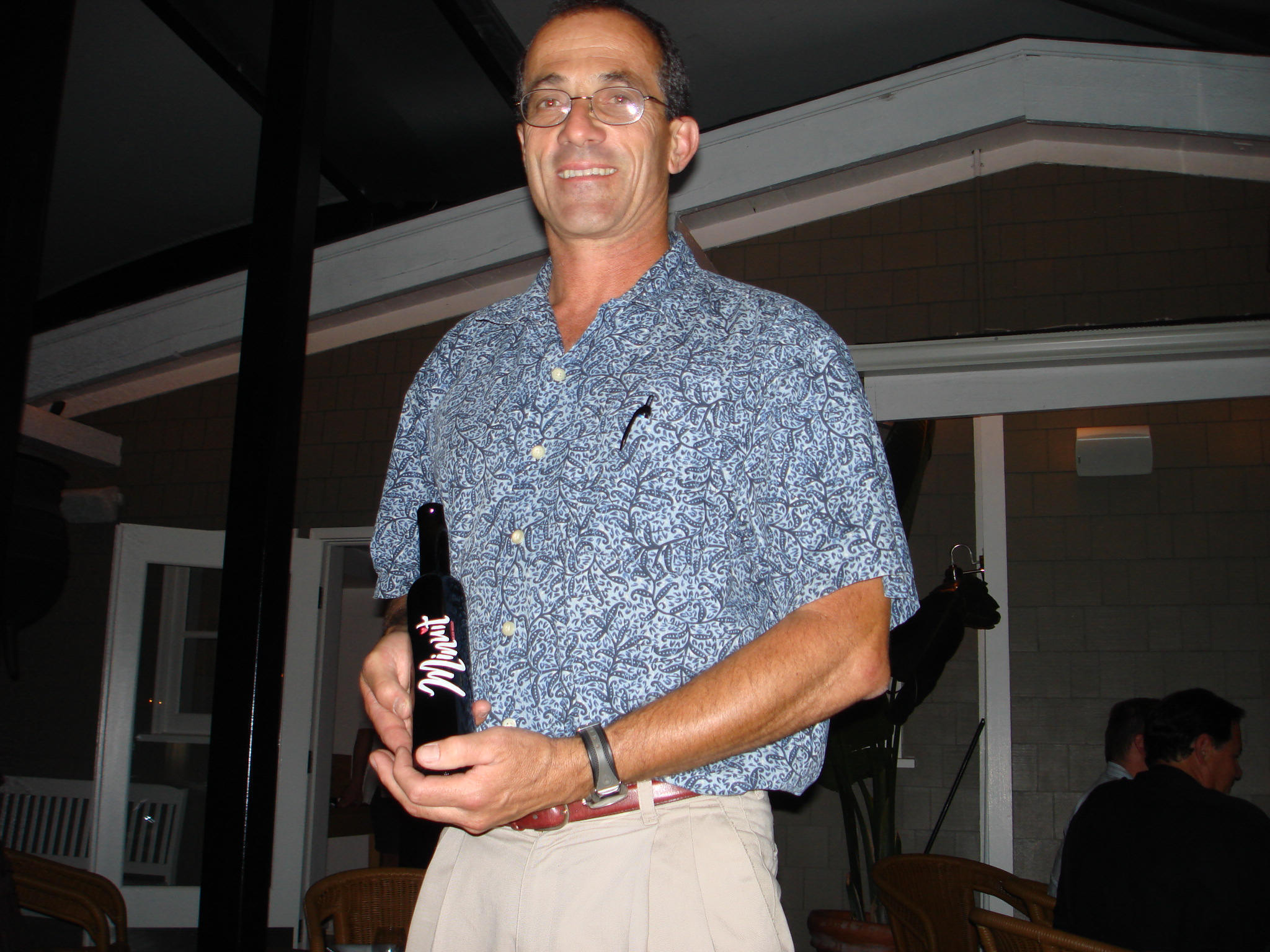 Chris
Phelps, Swanson’s winemaker and on-the-map icon in the industry, was our guide
who generously gave me face time to discuss wines to serve at my summer dinner
parties and barbecues. He’s someone to learn from having been trained at
Chateau Petrus and having served as winemaker at Dominus Estate and Caymus
Vineyards. With each of the six courses, Chris read through his wine notes to
help us “students” understand the process he went through for each pairing. Chris
Phelps, Swanson’s winemaker and on-the-map icon in the industry, was our guide
who generously gave me face time to discuss wines to serve at my summer dinner
parties and barbecues. He’s someone to learn from having been trained at
Chateau Petrus and having served as winemaker at Dominus Estate and Caymus
Vineyards. With each of the six courses, Chris read through his wine notes to
help us “students” understand the process he went through for each pairing.
 For
example, with our eggplant parmigiano he paired the 2003 Swanson Salon
Sangiovese (3oz. pour), the closest expression to traditional Brunello to be
found in Napa. “The nose of this full-bodied, aromatic wine shows generous
up-front raspberry, strawberry, and big cherry fruit with background notes of
anise and allspice. Your perfect companion to tomato-based sauces or any dish
throwing off generous acidity and spice, the 2003 Sangiovese can be enjoyed
through 2010.” Priced at $75/bottle, believe it or not, it was a steal. For
example, with our eggplant parmigiano he paired the 2003 Swanson Salon
Sangiovese (3oz. pour), the closest expression to traditional Brunello to be
found in Napa. “The nose of this full-bodied, aromatic wine shows generous
up-front raspberry, strawberry, and big cherry fruit with background notes of
anise and allspice. Your perfect companion to tomato-based sauces or any dish
throwing off generous acidity and spice, the 2003 Sangiovese can be enjoyed
through 2010.” Priced at $75/bottle, believe it or not, it was a steal.
If you haven’t experienced a
winemaker dinner, the Wine Vault & Bistro is a terrific introduction. Visit
www.winevaultbistro.com
for the schedule of upcoming dinners with a California winemaker. It’s a great
way to purchase wines, too. I bought several bottles of the 2006 Swanson Rosato
of Syrah at $15/bottle. Extremely fresh and brimming with bright red fruits
this dry and refreshing wine can be enjoyed alone as an aperitif or with grilled
poultry or fish.
"Give strong drink unto him that
is ready to perish, and wine unto those that be of heavy hearts. Let him drink,
and forget his poverty, and remember his misery no more." (Proverbs 31:6-7)
Tango
Wine Company,
also located on India Street,
offers inexpensive tastings without the food pairings. I attended the
old-world wine tasting class and, due to the positive response of the
group, will be repeated July 6 from 6:00-8:00pm. If you’re interested
in the diverse regions of Spain, such as Riax Baixas in the west or
Penedes in the east, this will be an informative class. The cost is $10
which covers, also, the cost of some light cheeses/meats, and breads.
And for a special treat, you can finish your tasting with a 94 point
(awarded by Robert Parker) Lustau East India dessert Sherry. Upcoming
wine education events will take place on July 20th in which
the wines of Germany and Austria will be featured, Aug. 3rd,
the wines of Italy, Aug. 17th Latin America, and Aug. 31st
the wines of Australia/New Zealand. Each event is from 6:00-8pm. Check
out their website for more information at
www.tangowine.com or call to make a
reservation at 619.564.7700.
Good wine is a good familiar
creature if it be well used.
(William Shakespeare, Othello)
Wine tastings are really fun
and a relaxing environment to learn what you like. The purpose of wine tasting
is the sensory evaluation of wine. The color, aroma, flavor and feel of the wine
in the mouth are all essential features of the experience to focus on. The main
aims of wine tasting are to assess the wine's quality, determine the wine's
maturity and suitability for aging or drinking,
detect the aromas and
flavors of the wine,
discover the many facets of wine,
so as to better appreciate it, and detect any faults the wine may have.
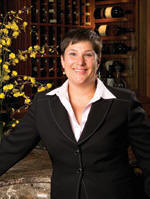 My
favorite teacher of wine in San Diego is Lisa Redwine (she jokes she
married her husband for his name). Lisa is the sommelier at My
favorite teacher of wine in San Diego is Lisa Redwine (she jokes she
married her husband for his name). Lisa is the sommelier at
Molly’s
Restaurant
located on the bayside of the Marriott Harbor Drive. Her signature
cocktail, The Boa, is the perfect beginning to any meal with its
combination of Domaine Carneros Sparkling, Elysium Black Muscat, and
Aqua Perfecta Raspeberry Liqueur. But it’s her
“Beyond
Brie”
wine and cheese hour that continues to capture my attention as she
shares the secrets of cheese and wine pairing using her “Ten
Commandments for Success!” Learn about them every Saturday from
4:00-5:00pm at Molly’s for $15/per person. Call 619.230.8909 to reserve
your seat. Say hi to Lisa for me when you go.
"Wine
is the most civilized thing in the world." (Ernest Hemingway)
I’ve been spending a lot of early
Wednesday evenings at the
San
Diego Wine & Culinary Center
for two reasons: 1) they have a terrific Happy Hour for dog owners and 2) I own
3 black Labs who are well-behaved enough to not embarrass me in public!
Co-sponsored by Dog Wash & Pet Supplies this every Wednesday night event from
5:30 pm - 8:30 pm has been a huge success and a great way to meet people,
especially those who love the coupling of canines and wine. Set on the huge dog
friendly sunset patio, dog owners mix and mingle while enjoying good wine, food,
and flattery (my Labs can never get enough rubs and hugs). In addition to food
and drink, there’s a drawing for a doggy basket of cool items along with weekly
fun doggy activities. Oh, how my dogs whine if their “mom” is deprived of her
wine. For More Information, call 619-231-6400 or visit www.sdwineculinary.com...B’Tayavon
Lynne
Thrope can be contacted at www.The ReadingRoom.net
(Return to top)
Dachau chaplain ...
(Continued from above)
Klausner used the first of the
Shearith Hapletah volumes to
comfort the survivors and inform them of their rights. He assured them that
they did not have to return to their former homes; were able to decide the
question of their repatriation freely, and not under intimidation from the
military that wanted them out of its jurisdiction; and that immigration
issues would be resolved on an individual basis when the American Jewish
Joint Distribution arrived.
Klausner also declared that the Jews had a
right to communicate with their family and relatives. No mail service
existed and civilians were prohibited from using the army postal system.
Against army regulations, Klausner encouraged the Jewish displaced persons (DPs)
to give their mail to camp leaders who then forwarded it to him. He then
sent the correspondence under his name and address to the National Jewish
Welfare Board in N.Y. to sort and mail to all parts of the world.
Knowing that the army was besieged with
requests from DPs of all nationalities, Klausner offered to relieve the
military of some its responsibilities for the Jews by creating separate
Jewish camps. There they would be protected from harassment from non-Jewish
inmates. Klausner also established separate hospitals for the hundreds of
Jews who were traumatized by being treated by German physicians.
When
Klausner saw Jews at Dachau still dressed in their camp uniforms, forced to
live behind barbed wire and those in other areas in Bavaria living in
deplorable conditions, he wrote an unauthorized report on June 24, entitled
“A Detailed Report on the Liberated Jew As He Now Suffers His Period Of
Liberation Under the Discipline of The Armed Forces of the United States.”
This prompted American Jewish leaders to ask government agencies to help
improve this situation.
When
Earl G. Harrison, dean of the University of Pennsylvania, went to Europe to
assess the plight of the Jewish DPs, Klausner accompanied him on his tour of
the camps, and helped shape his itinerary and his report.
After
reading Harrison’s report, President Harry Truman created the position of
adviser on Jewish affairs to the commander of the U.S. forces in Europe in
August 1945 to address the needs of the Jewish DPs. This gave the Jews an
advocate they desperately needed.
Realizing the need for the Jews to be recognized as a separate nationality,
Klausner convinced the Americans to allow the DPs to establish an
organization to represent them in negotiations with the military. Known as
the Central Committee of Liberated Jews in Bavaria, the survivors now took
responsibility for their future.
Klausner’s Kol Nidre speech
at the Opera House in Munich to a capacity crowd of American Jewish soldiers
is remembered as an impressive and dramatic event. Next to the podium where
he spoke, Klausner had a table with something covered under a white cloth.
After describing the plight of the DPs, he uncovered the plate to show what
the DP daily rations. He then asked the soldiers to urge their families to
send packages for them. Tons of desperately needed items soon began arriving
to Klausner and other Jewish chaplains.
When the
survivors asked Klausner’s help in establishing
Unzer Weg, the largest Yiddish
weekly in Germany, he agreed. Viewed by many as their national newspaper,
Unzer Weg became a significant
link for the survivors and world Jewry.
In the first issue of
Unzer Weg,
Klausner was
paid the highest tribute when the editor wrote: “Rabbi, friend, brother, you
have become one of us.” At a time when the survivors needed someone who
understood who they were, what they had experienced, and their need to
control their own destiny, Rabbi Klausner treated them with respect and
dignity. He really had become one of them.
Dr. Grobman
wrote about Rabbi Klausner in his book
Rekindling The Flame: American Jewish Chaplains and the Survivors of
European Jewry 1944-1948 and for the new edition of the
Encyclopedia Judaica.
(Return to top)
Entebbe Anniversary
(Continued from above)
On film, we watched as the
political leaders of 1976 debated what to do about the Jewish hostages who
had been sitting under Ugandan dictator Idi Amin’s guard for days. The
familiar faces of Yitzhak Rabin, Yigal Allon, Yitzhak Navon and Shimon Peres
flitted across the screen.
Interspersed with film clips, the accomplished singing troupes of several
army and air force divisions belted out some of the old rousing Israeli
anthems.
President Moshe Katzav thanked those who had liberated the hostages. “We say
to the terrorists of today: we did it then and we can do it now if we want.”
Following Katzav’s speech, several minutes of film of former hostages
describing their ordeal were screened. The hostages tell of their disbelief
that the IDF had sent their forces across the African continent to rescue
them. In excruciating detail they calmly recount the selection procedure
that separated the Jews and Israelis from the non-Jewish passengers on the
Air France flight.
Foreign Minister Shimon Peres rose to speak and chose to address himself to
the assembled young soldiers who filled the hall. He urged them not to think
of the Entebbe fighters as legendary heroes. “Each of you has the potential
to do the same thing,” he said. “You represent the best hope for the
people.”
Next on film was a short clip of an interview with a handsome middle-aged
civilian who was a pilot of one of the Hercules planes that left the Sirkin
air force base for the seven hour trip to Entebbe. “We were so afraid of
failure,” he says, his dark eyes looking unflinchingly at the camera. “But
on the way back, I felt like it was Pesach. I recalled the words of the
Hagaddah: ‘I and no angel: I and no messenger…brought you out of the land of
Egypt,’ concluded the pilot who wore no kippa on his silver hair. “If they
told me now, 25 years later to go on such a mission, I’d go without
hesitation. Ayn Lanu Eretz Acheret—we have no other country,” he said, in a
theme that was to echo throughout the evening.
Film interviews with others involved in the rescue followed. Almost all
those who played significant roles in Entebbe went on to illustrious
military and political careers. We watched as Ehud Barak, Matan Vilnai, Dan
Shomron and Ephraim Sneh spoke of their recollections twenty-five years on.
Shomron, the overall planner of the operation told the former hostages: “We
knew we were endangering you too. No one had any idea how many would fall.
You were part of the campaign, you’re part of the fight against terror.”
Two of the paratroopers came on stage to read short statements in their own
words about their feelings on the anniversary of the operation. One tall,
balding man with a gray mustache said he was disappointed that his teenage
son’s classmates knew nothing about Operation Yonatan. “We’re facing the
same things today—they need more than virtual Zionism, “ he said.
Benny, a younger man who was only 13 years old when he was taken hostage by
the terrorists, told the audience in a trembling voice that he remembers
every moment of the torment. “I was a kid who saw death in front of him.”
Tzipi Cohen was only 8 years old when she witnessed her father Pasco
bleeding to death as he was accidentally shot by Israeli soldiers in the
confusion of the rescue. Pasco Cohen lifted his head to look for his son
when the shooting started and became one of four Jewish hostages who
perished in Uganda. His daughter ended her brief remarks by reiterating her
gratitude to the IDF for saving all the hostages, despite her personal
tragedy.
The final segment of the two-hour program was entitled ‘The Price.’ Besides
the loss of Yoni Netanyahu and the four hostages, one soldier, Surin Hershko,
became a quadriplegic as a result of the injuries he sustained at Entebbe.
We watched on screen as Surin used his computer at home. He uses an
elongated straw manipulated by his mouth to write on the keyboard. Hershko
is completely paralyzed, but rolled to the front of the auditorium in his
wheelchair to reminisce about the last time he ran or walked. “I remember
what it was to be a fighter,” he recalled.
After presenting Hershko with a special medal commemorating Entebbe, Prime
Minister Ariel Sharon delivered a speech that tied Israel’s efforts to
combat terror in the 1970s to today’s struggle against the same enemy:
“In these confusing times, when there are those who question our
capabilities or the justness of our cause, we return to those few hours when
Israel stood up and in the face of the entire community of nations, waged a
battle against violence and terrorism, proving that we can win.
These days, when we are in the midst of an ongoing battle against terrorism,
violence and incitement, and when we are making a joint national effort to
return to political negotiations without fire, we must rekindle the spirit
of that operation. The secret of our strength lies in such spirit and faith,
and if we learn how to renew it we will be able to meet all the challenges
that still lie ahead.”
(Return to top)
Independence and tolerance...
(Continued from above)
Judea Pearl chose
to accept the relativity in Steven Spielberg’s 2005 film, treating the Munich
murderers as having a point, because his inner reflections still drew the
distinction between relative realities and the necessity of action against
brutal terrorists.
The depiction of the
violence and senseless brutality of the Munich massacre will convince even
devout skeptics that civilized society must exercise all available means to
protect itself against the planet's latest evil, terrorism.
Among those means, the
concept of "bringing to justice" is a moral imperative that society has
taken very seriously in the past, for it expresses and reaffirms society's
commitment to live by principles, not whims. …
FILM-GOERS may be taken
aback by shallow political discussions on the causes of Palestinian
terrorism, which imply, albeit tacitly, that targeted killings of innocent
human beings may be justified if done for transmitting messages of genuine
grievance.
To be sure, it is not
Spielberg's attempt to give terrorists understandable motivation that may
make viewers bristle, nor his depiction of terrorism as an act of
desperation. On the contrary, by giving terrorists rationale Spielberg makes
their acts so much more threatening and widely applicable. Positioning the
Munich murderers as people driven by perceived injustice only makes their
inhumanity more credible, and the basis for their perception less plausible.
Yet what was unbearable
are attempts in the film to stretch common sense by drawing symmetries
between the terrorists and their pursuers. Since violence leads to more
violence, so the film's logic goes, it must be that all acts of violence are
somehow morally equivalent….
Judea Pearl’s closer
connection to the brutal murder of his son results in less acceptance of the
treatment of that event in the current film Mighty Heart. Writing a
review in
The New Republic Pearl points
out: (free subscription login):
The political lesson of
Russell's paradox is that there is no such thing as unqualified tolerance.
Ultimately, one must be able to expound intolerance of certain groups or
ideologies without surrendering the moral high ground normally linked to
tolerance and inclusivity. One should, in fact, condemn and resist political
doctrines that advocate the murder of innocents, that undermine the basic
norms of civilization, or that seek to make pluralism impossible. There can
be no moral equivalence between those who seek--however clumsily--to build a
more liberal, tolerant world and those who advocate the annihilation of
other faiths, cultures, or states….
I am worried that A Mighty
Heart falls into a trap Bertrand Russell would have recognized: the paradox
of moral equivalence, of seeking to extend the logic of tolerance a step too
far. You can see traces of this logic in the film's comparison of Danny's
abduction with Guantánamo--it opens with pictures from the prison--and its
comparison of Al Qaeda militants with CIA agents. You can also see it in the
comments of the movie's director, Michael Winterbottom, who wrote on The
Washington Post's website that A Mighty Heart and his previous film The Road
to Guantánamo "are very similar. Both are stories about people who are
victims of increasing violence on both sides. There are extremists on both
sides who want to ratchet up the levels of violence and hundreds of
thousands of people have died because of this."…
There can be no comparison
between those who take pride in the killing of an unarmed journalist and
those who vow to end such acts--no ifs, ands, or buts. Moral relativism died
with Daniel Pearl, in Karachi, on January 31, 2002.
There was a time when drawing moral symmetries between two sides of every
conflict was a mark of original thinking. Today, with Western intellectuals
overextending two-sidedness to reckless absurdities, it reflects nothing but
lazy conformity. What is needed now is for intellectuals, filmmakers, and
the rest of us to resist this dangerous trend and draw legitimate
distinctions where such distinctions are warranted….
Some may argue that they can
only or most affect American actions, as their rationalization for focus upon
these to the downplaying or ignoring the actions of our adversaries. That plays
right into the explicit propaganda strategy of our foes, by hobbling our will
and execution. They may not be tolerant of the intolerable aims and actions of
our sworn enemies, but the – by now unavoidable – truth of the matter is that
their one-sided relativity goes beyond tolerance to active and knowing abetment.
Some may argue that they are
being independent in their judgments, as their rationalization for their focus
on American policy and practice, or relativity in considering the nature or
scope of our actions and those of our enemies. That, also, plays right into the
explicit propaganda strategy of our foes, by confusing independence with lack of
insight and knowledge.
If independence means anything
any more on Independence Day, then it must be the clear and guiding realization
that the intolerable is not tolerable, and will not be tolerated. Relativity is
not tolerance. Relativity, instead, undermines thoughtful, informed and
realistic tolerance and, indeed, survival.
(Return to top)
|

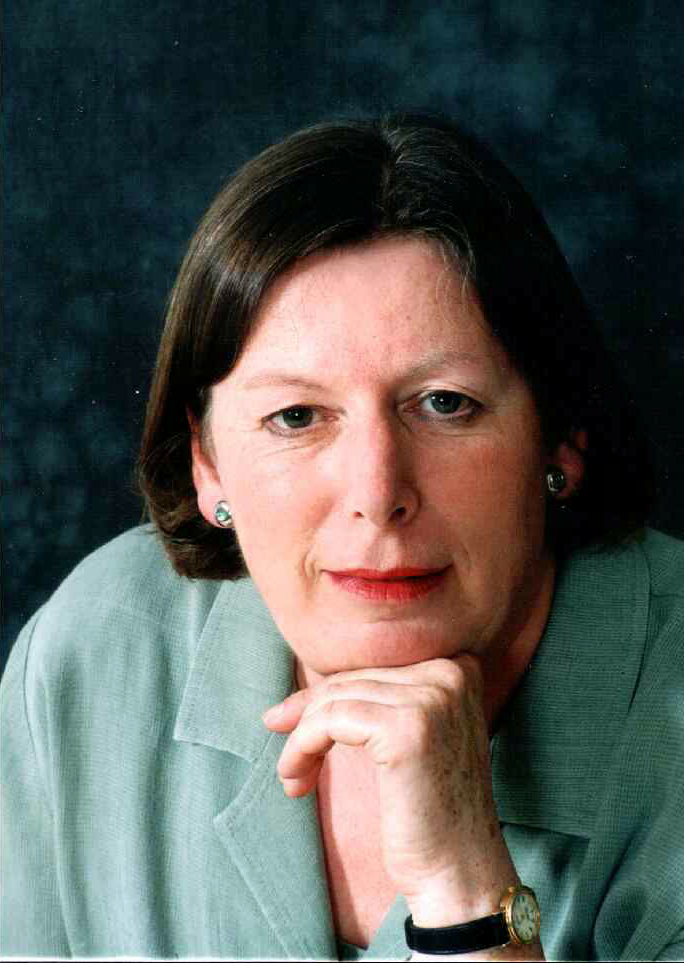 Jerusalem Diaries
Jerusalem Diaries
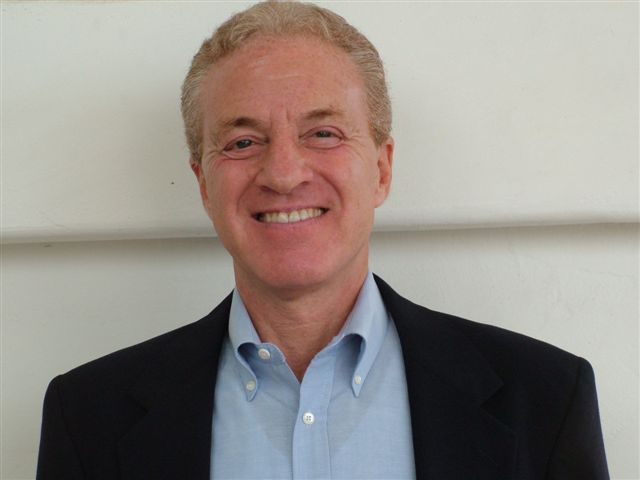 Freedom
at Issue
Freedom
at Issue I
am not a real patriot. There are a lot of problems in this great country of
ours. We are stuck in the quagmire of this losing war in Iraq; we will leave our
huge deficit to our kids and grandkids; The President has an imaginary friend
who gives him advice (that, or he hears voices in his head.) Our government
seems to virtually ignore global warming and is so gluttonous from the big money
they get from oil lobbies that they spend zip on research for new energy
resources. They would rather worry about keeping hard working Mexicans out of
the USA and worry about whether two men might choose to marry and live in a
committed relationship. The health insurance problem is vast, not only because
we poor people have to choose between paying our phone bill or getting a check
up, but because a woman of my size can be denied health insurance even with low
blood pressure and low cholesterol, just based on my weight. Yes, it's a mess
here, my friends.
I
am not a real patriot. There are a lot of problems in this great country of
ours. We are stuck in the quagmire of this losing war in Iraq; we will leave our
huge deficit to our kids and grandkids; The President has an imaginary friend
who gives him advice (that, or he hears voices in his head.) Our government
seems to virtually ignore global warming and is so gluttonous from the big money
they get from oil lobbies that they spend zip on research for new energy
resources. They would rather worry about keeping hard working Mexicans out of
the USA and worry about whether two men might choose to marry and live in a
committed relationship. The health insurance problem is vast, not only because
we poor people have to choose between paying our phone bill or getting a check
up, but because a woman of my size can be denied health insurance even with low
blood pressure and low cholesterol, just based on my weight. Yes, it's a mess
here, my friends. Jews
in the News
Jews
in the News











 We
first see him holed up with his Christian family in a Sudanese
refugee camp. With them are groups of displaced and struggling black
Africans, including Ethiopian Jews (then called Falashas) readying
to go to Israel, plus Christians and Muslims displaced by civil war
and ethnic cleansing from Sudan and neighboring countries.
We
first see him holed up with his Christian family in a Sudanese
refugee camp. With them are groups of displaced and struggling black
Africans, including Ethiopian Jews (then called Falashas) readying
to go to Israel, plus Christians and Muslims displaced by civil war
and ethnic cleansing from Sudan and neighboring countries.
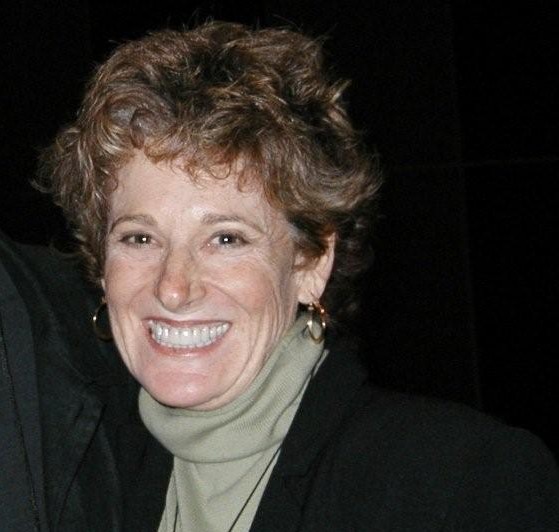 What's
Good to Eat in
What's
Good to Eat in My
favorite teacher of wine in San Diego is Lisa Redwine (she jokes she
married her husband for his name). Lisa is the sommelier at
My
favorite teacher of wine in San Diego is Lisa Redwine (she jokes she
married her husband for his name). Lisa is the sommelier at